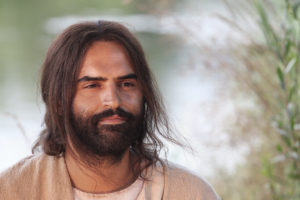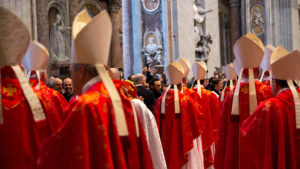There is a time for everything,
and a season for every activity under the heavens.
– from The Christian Bible’s Old Testament (Ecclesiastes 3:1)
 For most of my life I was one of the most ardent Christians you know. I have read the Bible from cover to cover more than a dozen times. I majored in Christian history in college. I grew up expecting to become a minister, but I married a Catholic so I became a Lector. The first time it occurred to me that the religion has little to do with Jesus, I fully expected a lightning bolt to come right through the ceiling. And I have survived a few nights when I have gone to bed having fervently prayed – on my knees, no less! – for God to take me in my sleep if some manuscript of mine was not supposed to be published. This being a heretic is a hard row to hoe!
For most of my life I was one of the most ardent Christians you know. I have read the Bible from cover to cover more than a dozen times. I majored in Christian history in college. I grew up expecting to become a minister, but I married a Catholic so I became a Lector. The first time it occurred to me that the religion has little to do with Jesus, I fully expected a lightning bolt to come right through the ceiling. And I have survived a few nights when I have gone to bed having fervently prayed – on my knees, no less! – for God to take me in my sleep if some manuscript of mine was not supposed to be published. This being a heretic is a hard row to hoe!
But I never wanted to be a heretic. I simply wanted to live the truth. And my experiences of light at the age of eight, and then again at the age of twenty, have made me know that there really is a definitive truth to be pursued. But of course, I know a lot more now. I have always felt devoted to Jesus, but of course everyone is devoted to Jesus. Every time I would read the whole Bible, before I started in over again, I would re-read the New Testament, and then I would read just the Gospels one more time before I started over with Genesis. I never knew who my spirit guide was until February of 2015, and for a long time I associated him with the Founding Father, without yet knowing that Jefferson’s own interest in the Gospels had much deeper roots.
It is only now, in just the past two months, that I fully understand that my spirit guide has always led a double life. While he has been guiding me, and I must say that he has done a decent job of that, in a greater reality where there is no time or distance, he also has often been nipping off to spend some non-time with his eternal Brother. Clearly, it is a relief to him now to bring the disparate parts of his life together. But for me, this spring feels in equal parts exciting and extremely peculiar. I am relieved to at last have Seek Reality Online almost ready to roll! We have been talking about doing this website for going on five years now, so to have it about to go live feels amazing. After my fifty years spent researching death and the afterlife, this website feels like such a useful gift to the world!
And of course, all the Christian websites are full of Apocalyptic rumblings this spring. I won’t link to them. Instead, I’ll link to a couple of my own articles from a few years back, when we also had this same sort of political angst in the air that inspired similar Apocalyptic anticipation. The fact is, of course, that Jesus is never going to come back in a cloud of righteous vengeance, for the simple reason that in a reality based in Consciousness, His doing that would lower the vibrations of all of reality so much that His vengeance would be counterproductive. It would lower the vibrations of all the world! Jesus never is going to return on a white horse and with a sword in His hand. But in fact, apparently He is indeed about to come back now, and in the way that you might expect Him to come back in the twenty-first century, come to think of it. He is about to launch His own website.
 Of all the things that I ever had thought could happen in my life, casually chatting with Jesus while we fed His pet fish was probably the least likely thing I could imagine. And now, my Thomas being the low-key fellow that he is, the implications of that meeting that he arranged for us with Jesus are finally dawning on me. That was not just a casual visit. “Come and meet my kid brother from my Neolithic lifetime!” No. It was vintage, classic Thomas. This is how he does things. Welcome to my world! “Jesus has decided that He doesn’t want us just to talk about His teachings as part of the spiritual growth section of Seek Reality Online. He wants us to put them in another website.” Okay. Sure. Then, a few days later: “Jesus wants that website to be His own website.” Oh. Of course. Then, a few days after that: “Jesus has decided that He wants to tell His true story in His new website.” Omigod, really? I thought it was going to be only about His teachings. But, sure. Then: “Jesus wants you to tell His true story in your next blog post.” But we just did that! “No, the whole story.” Oh. Okay. So, that was just last week. It brings us to today. And it is dawning on me now where this seems to be heading. A few weeks ago, one of our commenters asked a question, and Thomas said, sounding oddly giddy, “Jesus wants to answer it. Ask Jesus.” I said, “But I know the answer!” Thomas said, “Go ahead. Ask Him.” So I asked Jesus the question in my mind. “Jesus, is there a hell?” And I heard His distinctive voice say clearly in my mind, “There is no hell. There is only love and light.” Which freaked me out! Now I worry that they might be planning some sort of Mikey-and-Carol question-and-answer thing at Jesus’s new website. With me as Carol. And nobody ever would believe in that!
Of all the things that I ever had thought could happen in my life, casually chatting with Jesus while we fed His pet fish was probably the least likely thing I could imagine. And now, my Thomas being the low-key fellow that he is, the implications of that meeting that he arranged for us with Jesus are finally dawning on me. That was not just a casual visit. “Come and meet my kid brother from my Neolithic lifetime!” No. It was vintage, classic Thomas. This is how he does things. Welcome to my world! “Jesus has decided that He doesn’t want us just to talk about His teachings as part of the spiritual growth section of Seek Reality Online. He wants us to put them in another website.” Okay. Sure. Then, a few days later: “Jesus wants that website to be His own website.” Oh. Of course. Then, a few days after that: “Jesus has decided that He wants to tell His true story in His new website.” Omigod, really? I thought it was going to be only about His teachings. But, sure. Then: “Jesus wants you to tell His true story in your next blog post.” But we just did that! “No, the whole story.” Oh. Okay. So, that was just last week. It brings us to today. And it is dawning on me now where this seems to be heading. A few weeks ago, one of our commenters asked a question, and Thomas said, sounding oddly giddy, “Jesus wants to answer it. Ask Jesus.” I said, “But I know the answer!” Thomas said, “Go ahead. Ask Him.” So I asked Jesus the question in my mind. “Jesus, is there a hell?” And I heard His distinctive voice say clearly in my mind, “There is no hell. There is only love and light.” Which freaked me out! Now I worry that they might be planning some sort of Mikey-and-Carol question-and-answer thing at Jesus’s new website. With me as Carol. And nobody ever would believe in that!
But with Thomas, nothing ever is random. And I always am the last to know.
 The plain fact is that the religion is hollow. And it always has been hollow. It is an abundance of show on the outside. Lots of costumes and buildings, dogmas and fears enough to keep whole nations toeing the line for most of the past two thousand years! I recall as a child how the Catholic children had to fuss and worry about whether or not today was “a Holy Day of Obligation.” Those strictures have lessened, but still I look at the Vatican, which pulls in millions of dollars each year from parishes both rich and poor, and I think of how many children in the world are starving right this minute. Protestants are little better, with some online clergy living like pashas. And both sides have sex scandals galore! And yet, what are they producing? I have been a Protestant and then a Catholic and then a Protestant over again, and I used to travel a lot on business so I have attended services in many different Christian churches over the years. I can personally attest that there are no more cliquish, judgmental people on earth than Christians in their various denominations.
The plain fact is that the religion is hollow. And it always has been hollow. It is an abundance of show on the outside. Lots of costumes and buildings, dogmas and fears enough to keep whole nations toeing the line for most of the past two thousand years! I recall as a child how the Catholic children had to fuss and worry about whether or not today was “a Holy Day of Obligation.” Those strictures have lessened, but still I look at the Vatican, which pulls in millions of dollars each year from parishes both rich and poor, and I think of how many children in the world are starving right this minute. Protestants are little better, with some online clergy living like pashas. And both sides have sex scandals galore! And yet, what are they producing? I have been a Protestant and then a Catholic and then a Protestant over again, and I used to travel a lot on business so I have attended services in many different Christian churches over the years. I can personally attest that there are no more cliquish, judgmental people on earth than Christians in their various denominations.
And essentially, they all teach more or less the same awful set of made-up dogmas:
- God can’t forgive us for Adam’s sin in eating that forbidden apple, so we are “fallen.”
- So then God had to send His own pure Son, miraculously sired by God Himself of a virgin human being, to die as a pure sacrifice to God Himself.
- Due to the acceptable sacrifice of God’s own Son to God the Father, a supposedly loving God is willing to forgive us for Adam’s having eaten that apple.
- There are other equally creepy refinements, such as the transubstantiation of bread and wine into the physical flesh and blood of Jesus for Catholics’ obligatory weekly consumption.
And throughout, spending eternity in a fiery hell remains a constant threat! If we die without receiving last rites in the Catholic church, or if we die in certain Protestant denominations without having been originally created by God as part of God’s limited Elect, or without having been “Saved” in one magical way or another, then burning alive and aware in eternal fire is our certain destiny.
 Where are the teachings of Jesus in any of this? The ugly dogmas listed above all came from the fear-based Roman religion that was established three centuries after the death of Jesus. None of it is based in anything that Jesus ever said! And while in both Catholic and Protestant services someone will read from the Gospel words of Jesus, in all the various flavors of Christianity the actual teachings of Jesus are considered to be too difficult for most people to follow consistently, so they are treated as only aspirational. Nice ideas, but not to be enforced too seriously lest they thin the ranks of the faithful in the pews. The reason that Jesus gives to us for devoutly following His teachings – the eventual advent of the kingdom of God on earth – is generally taken to mean no more than just the spread of the Roman religion itself. So, do you see what I mean? Roman Christianity is, and it always has been, just as hollow on the inside as a gourd.
Where are the teachings of Jesus in any of this? The ugly dogmas listed above all came from the fear-based Roman religion that was established three centuries after the death of Jesus. None of it is based in anything that Jesus ever said! And while in both Catholic and Protestant services someone will read from the Gospel words of Jesus, in all the various flavors of Christianity the actual teachings of Jesus are considered to be too difficult for most people to follow consistently, so they are treated as only aspirational. Nice ideas, but not to be enforced too seriously lest they thin the ranks of the faithful in the pews. The reason that Jesus gives to us for devoutly following His teachings – the eventual advent of the kingdom of God on earth – is generally taken to mean no more than just the spread of the Roman religion itself. So, do you see what I mean? Roman Christianity is, and it always has been, just as hollow on the inside as a gourd.
But the Jesus of the Gospels is a living Being! And back before the hollow religion that bears the name of Jesus, there was a genuine movement built on the actual teachings of Jesus that grew to be millions strong. That movement was so spiritually joyous that, as my Thomas insists to me now, it could inspire people who were nailed to crosses and devoid of breath to sing for two days before they died. Now, that was some deeply spiritual movement!
But then the Romans destroyed The Way of Jesus. After which they gave Jesus seventeen hundred years of deeply personal pain beyond anything that you and I can imagine.
First, Jesus welcomed home and Himself healed the followers of His Way that the Romans had tortured and murdered in their millions. And then Jesus welcomed, comforted, and healed all the victims of the Crusades, on both sides. And the victims of the Spanish Inquisition. And after that, it has been long centuries of the victims of Christianity itself, both Catholics and Protestants, who have died in terror of burning in hell even as late as the end of the twentieth century, each of whom has been stunned to arrive in the beautiful afterlife, alive and whole and into the waiting arms of Jesus. My Thomas tells me that it really is only now that the last of the victims of fear-based Christianity are no longer arriving home needing Jesus’s restorative care upon their arrival. So it is only now that He can plan His genuine Second Coming, when He will begin again freshly to teach His Way to the world through His own website.
 So for the past seventeen hundred earth-years, in a reality that is based in Consciousness and where love is all that matters, Jesus has lavished so much love on so many billions upon billions of victims of the religion that bears His name that now Thomas tells me that the extent of the Lord’s temporal power is beyond all human calculation. So, at least there is that!
So for the past seventeen hundred earth-years, in a reality that is based in Consciousness and where love is all that matters, Jesus has lavished so much love on so many billions upon billions of victims of the religion that bears His name that now Thomas tells me that the extent of the Lord’s temporal power is beyond all human calculation. So, at least there is that!
Oh my dear friends, even after a lifetime of study, and even after this amazing spring, I still feel as if I know so little, and now I understand even less.
I am sorry to say this, but I truly cannot understand how the Jesus with whom I fed fish that night, as powerful as He is and as good as He is, has not mounted that white horse in sheer exasperation a very long time ago! No, but one thing that I do know is this. After all the personal pain that the religion that bears His name has cost Him, if my Lord and Master Jesus the risen Christ asks me to do any least thing for Him now, then I will do it for Him. And with the greatest joy!
a time to be born and a time to die, a time to plant and a time to uproot,
a time to kill and a time to heal, a time to tear down and a time to build,
a time to weep and a time to laugh, a time to mourn and a time to dance,
a time to scatter stones and a time to gather them, a time to embrace and a time to
refrain from embracing,
a time to search and a time to give up, a time to keep and a time to throw away,
a time to tear and a time to mend, a time to be silent and a time to speak,
a time to love and a time to hate, a time for war and a time for peace.
– from The Christian Bible’s Old Testament (Ecclesiastes 3:2-8)




















































